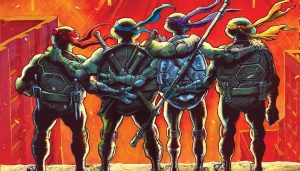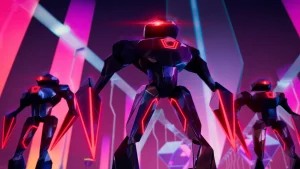The gaming landscape is always changing, and I’m worried that Shigeru Miyamoto’s recent points about IP and gaming history have dire connotations for the industry as a whole. Miyamoto stands out as one of the most important game developers of all time. The primary creator behind Super Mario Bros., The Legend of Zelda, Donkey Kong, and plenty of other Nintendo mainstays, Miyamoto has remained a guiding light for the company since it rose to prominence in the late 1980s.
As such, his perspective means a lot when it comes to the future of the industry. It’s also why it’s so saddening to hear his thoughts on why Nintendo has been increasingly shifting focus to expanding its IP outside of gaming. While it speaks to the enduring power of Nintendo as a creative force in the industry, it also underscores an increasingly dour reality about game preservation in the modern era.
While speaking with Nintendo Dream about the Nintendo Museum and the publisher’s embrace of cinematic adaptations like The Super Mario Bros. Movie, Shigeru Miyamoto noted that, “ultimately, what people remember are the IPs. Games become obsolete when new versions come out. But that’s incredibly sad. We started video production partly because of that sadness – seeing our creations become playable only on Virtual Console.”
Miyamoto isn’t wrong. While specific entries in major franchises like Mario and The Legend of Zelda have stood the test of time, the iconography of the series and their characters is what endures more than anything else. Fandom rarely goes out of its way to celebrate a single title outside of “best/worst” arguments, usually focusing on its defense or criticism of a series as a whole. This is one of the reasons Miyamoto and the rest of Nintendo seem to have embraced new feature-length film adaptations of their titles, noting that “there’s a limit to what you can do if you make them playable in a museum, but videos will remain forever.”
The ubiquity of video makes it easier to keep those characters alive by taking them into other media, compared to how older games can become outdated over time. The full interview sees Miyamoto arguing for the overall stability of Nintendo as a name brand, with their expansions into the worlds of film and theme parks another way to ensure they remain at the forefront of players’ minds and hearts. This is why he said that people primarily remember the IP and not the specific games they play. However, it’s also quietly a somber reflection from one of gaming’s most important creators about the state of the industry and highlights a wider existential threat facing video games as a whole.
By the very nature of franchise development in an industry like video games, characters and concepts are more important to the average person than the developer behind them or a specific title they star in. If someone is a fan of Zelda games, that love can apply to all sorts of elements, ranging from specific games to certain aspects like the soundtrack. Even just loving the series overall, instead of any particular standout game, is a valid response to the IP. It’s not all that different from how specific superheroes have thrived for generations of comics or certain anime heroes have endured for several shows across multiple decades. It’s an inevitable response to a long-running concept that trades hands and transcends generations.
However, it also highlights how a lot of specific entertainment history has been lost and how hard it can be to keep those previous titles available. Other media, like film and television, experienced infamous purges that resulted in countless lost shows and movies. With age finally catching up to older video games that haven’t been remastered, remade, or even just properly collected, those works are being lost to time. The games that didn’t become franchises can easily be forgotten, and the ones that did can be transformed into something almost unrecognizable. In an era where internet connections are required for certain titles and a server closure can effectively erase years of a player’s life, older games becoming “obsolete” means there’s a chance they’ll be gone forever.
Stuff like the Virtual Console for the Nintendo Switch does a good job of keeping classic titles alive for modern players, but hundreds of games will never reach the level of popularity needed to make the leap to that format or earn a remake of their own. In an era where older games are at best remade and at worst forgotten, there are entire generations of game design and innovation falling through the cracks. While the bigger IP will remain, the unique creations and creatives behind gaming’s biggest achievements won’t get the recognition they deserve. Instead, it is the brand that thrives, even if the developers are completely different title by title.
This is heartbreaking on multiple fronts. As a fan of the developers who turn their ideas into playable formats, it’s saddening to hear that many of them will lose more and more notoriety as time goes on. As a fan of clever game design, it feels like a wealth of experience and hard-earned knowledge about the construction of compelling gameplay mechanics is fading away. As a fan of specific older titles, it’s heartbreaking to know it’ll be hard to ever play those games again. The Nintendo Museum is a crucial means of preserving that history for future generations, but it also inherently locks it away on a certain level that prevents it from feeling like a part of the current gaming environment. It turns gaming history into an abstract instead of a part of a living, breathing medium. Specific games are lost, even if the game characters and IP live on.
The problem is that this perspective further suggests the gaming industry will move beyond the past instead of building on it. It will be more content to rehash older titles instead of experimenting with other concepts. Older titles will be replaced with their newer remakes, losing the natural lessons that come from improving on past mistakes. Older titles are less likely to remain readily available; they become “obsolete” and are left behind. There are countless games that players loved growing up that are now next to impossible to find, let alone play.
In the end, it’s the IP that survives. Silent Hill is a good example of what different creative teams can do with a shared IP, with Silent Hill f taking inspiration from the older titles while very much charting a unique path and story forward. However, another recent entry in the franchise is also proof of what can be lost in the process of remaking titles and then moving on. The Silent Hill 2 remake was a solid effort to bring the classic horror game into a modern gameplay aesthetic, but it also lost some of the mystique and effectiveness of the original design. That may now be moved past because players will instead only flock to the remake instead of the original.
While some of Silent Hill 2‘s effectiveness was a result of the game developers adjusting to technical limits, it also produced a truly memorable experience that has continued to haunt players for decades. As argued by Yahtzee Croshaw as a part of his Second Wind series, Semi-Ramblomatic, remakes like Silent Hill 2 iron away the faults and flaws that add to the unique experience of a game in the name of creating the most broadly appealing product for modern audiences. This has two negative results; it keeps developers from analyzing the mistakes of the past to improve upon the future, and it costs fans some of the unique approaches that the experimentation of the past produced.
Older games may have lacked modern polish, but they still carried plenty of nostalgia for older fans and potential for newcomers who might discover them. Because games become “obsolete” in the name of IP thriving, they become easy to lose. While Miyamoto’s point speaks to the enduring qualities of brands like Nintendo, it also underscores a challenge facing gamers who want to look back to the history of the medium instead of only charting paths ahead. Doing the latter means countless people and titles who helped make gaming what it is will be forgotten, and that’s a genuine tragedy for the medium.
The post I’m Afraid Mario Creator Shigeru Miyamoto Might Be Right About the Future of Gaming appeared first on ComicBook.com.




